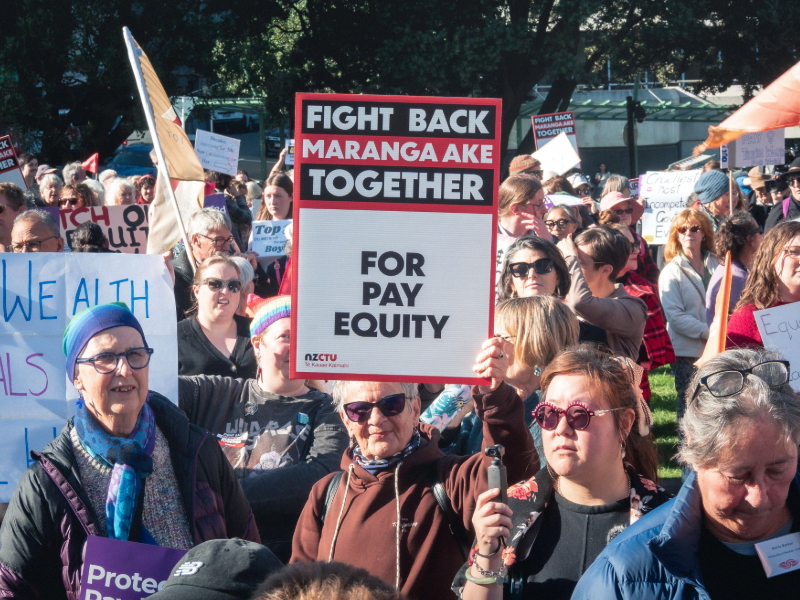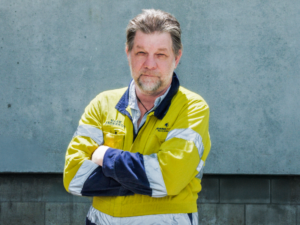
Just over halfway through the year, the National-led Government has already done serious damage to workers’ rights. In sector after sector, they’ve pushed policies that shift more power to employers, cut funding for decent jobs, and weaken the laws that protect working people. E tū members are fighting back – but the scale of the attacks is bigger than many expected.
Here’s a snapshot of what has happened so far.
Contractor protections under threat
One of the Government’s most cynical moves is its plan to block people from challenging their employment status. At the moment, workers like Uber and courier drivers can go to the Employment Court to argue they should be treated as employees – with proper wages, sick leave, and legal protections. E tū helped them win that case. Now, the Government wants to stop these challenges altogether, locking in a low-rights, low-wage model for the growing number of people pushed into sham “contracting” arrangements.
Undermining the right to strike
In a move that threatens all union members, the Government introduced legislation to allow employers to deduct pay for even the smallest industrial action. This includes things like wearing stickers or refusing overtime doing what the law describes as a partial strike. These kinds of actions are often used when full strikes aren’t possible – especially in essential services. Letting employers dock pay anyway is designed to intimidate people out of taking action, and it tilts the playing field even further in favour of employers.
Cutting compensation in personal grievances
The Government is stripping away the rights of workers who raise personal grievances. If a worker is accused of serious misconduct, they would lose access to any remedies, including reinstatement or compensation. Even in less serious cases, any perceived “contribution” by the worker could mean no payout at all. This change will heavily favour employers, making it harder for workers to challenge unfair treatment and easier for bad bosses to get away with it.
Living Wage under attack
For years, E tū members campaigned to make the Living Wage the minimum for cleaners, security guards, and other support workers employed through government contracts. Now, that hard-won progress is being dismantled. The Government intends to remove Living Wage requirements from the new government procurement rules, robbing essential workers of this wage protection. If this goes ahead, thousands of workers could see their incomes fall – at a time when the cost of living keeps rising.
Wrong priorities for health and safety
The Government is rewriting health and safety law – and their priority is cutting “red tape,” not saving lives. Already, they’ve scrapped WorkSafe’s High Hazards Unit and signalled a full restructure of the regulator. They’ve cut staffing, limited inspections, and weakened enforcement. All of this puts workers at more risk, especially in dangerous industries like construction, extractives, and manufacturing. It’s a return to the old model – wait until something goes wrong, then deal with the consequences.

Mark Anderson
OceanaGold, Waihi Convenor of the E tū Engineering, Infrastructure, and Extractives Industry Council
This Government says it wants to grow the mining industry, but you can’t expand a high-risk sector while quietly gutting the health and safety laws that protect workers. It’s contradictory and it’s dangerous. If we’re bringing in more workers, especially new ones, we need stronger protections, not weaker ones. Workers like me know how quickly things can go wrong underground. We live with the risks every day. I’ve invited the Minister to see it for herself, but so far, there’s been no interest. That tells you everything you need to know about where their priorities lie.

Mele Peaua
Wellington cleaner
Public and Commercial Services Industry Council member
I’ve been proud to stand up for workers as an E tū member, and I’ve fought for the Living Wage for years. So, it’s heartbreaking to see the Government trying to take it away. Before, we said getting the Living Wage was a blessing – but what do you call it when they take that blessing back? I’ll keep fighting for all of us, cleaners, security guards, catering staff, because we all deserve a life we can live with dignity.
